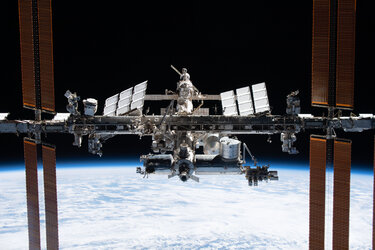Eight new student teams selected to fly experiments on REXUS/BEXUS!
Eight teams have taken one step closer to their dream of flying experiments to the edge of space by being selected to participate in the 12th cycle of the Rocket/Balloon Experiments for University Students (REXUS/BEXUS) programme!
Between 27th and 29th November 2018, 12 teams from around Europe travelled to ESTEC, ESA’s engineering and technology centre in The Netherlands to present their experiment proposals to a panel of experts.
The selection workshop saw the attendance of nearly 60 students representing 13 ESA member states, and three other countries. Before pitching their ideas the participants were first trained in several skills such as requirement definition, documenting a space project, project planning and risk management.
The panel of experts included engineers and scientists from ESA and our programme partners: the Swedish National Space Agency (SNSA), SSC, ZARM, and the German Space agency’s (DLR) mobile rocket base (MORABA).
Experiments involving different disciplines, from actively controlled re-entry capsules and hypersonic parachute experiments to the study of the influence of radiation in biological samples and cancer research were presented during the workshop.
Following the intense presentations, trainings, and networking with fellow students and professionals, the participants were treated with a tour of some of the ESTEC facilities before travelling back to their Universities.
The teams selected to fly their experiments on board BEXUS 28/29, in space-like conditions of radiation, air pressure and temperatures, at an altitude of 20 to 30 km are:

- DESTINY: Detection of earthquakes through a stratospheric Infrasound study, from École Polytechnique, France.
- IRISC: Infrared imaging of astronomical targets with a stabilized camera, from Luleå University of Technology, Sweden.
- SHADE: SDR helix antenna deployment experiment, from Aristotle University of Thessaloniki, Greece.
- TARDIS: Tracking and attitude radio-based determination in stratosphere, from Sapienza University of Rome, Italy.
- R2C2: Radar recognition of chaff clouds in the stratosphere, from Luleå University of Technology, Sweden.
The teams selected to fly their experiments on board REXUS 26/27, in reduced-gravity and/or free fall like conditions from an altitude above 80 km are:
- FLORENCE: Flow boiling regime in microgravity conditions experiment, from KU Leuven University, Belgium.
- HADES: Hayabusa-capsule active dynamic re-entry stabilisation, from HEPIA-GE and HES-SO, Switzerland.
- SPEAR: Supersonic parachute experiment aboard REXUS, from Delft University of Technology, The Netherlands.

As the REXUS programme is realised under a bilateral agreement between SNSA and DLR, a concurrent selection workshop was also held at DLR Bonn, where eight German teams were selected:
- AIMIS: Additive manufacturing in space, from University of applied Science Munich.
- BLACK-BOX II: Locatable crash safety data storage device for sounding rockets, from City University of Applied Science Bremen.
- GAMMA VOLANTIS, Nafion ozone sensor field test from Technische Universität Dresden.
- IROCS, Influence of radiation on charged spheres from University of Duisburg-Essen.
- OOXYGEN, Organic oxygen sensor reference experiment from Technische Universität Dresden
- ROACH-2, Robotic in-orbit analysis of cover hulls 2, from University of Stuttgart.
- TANOS: Thermal atmospheric neutron observation system, from Kiel University.
- TUPEX-7: TU-Berlin picosatellite experiment 7, from Technische Universität Berlin.
More information about the DLR selection is available on the DLR website.
Congratulations to all teams selected! The hard work now begins as the teams begin to develop their preliminary design, ready for review during a dedicated Student Training Week to be held in DLR Mobile Rocket Base MORABA, located in Oberpfaffenhofen, Germany, in February 2019.















 Germany
Germany
 Austria
Austria
 Belgium
Belgium
 Denmark
Denmark
 Spain
Spain
 Estonia
Estonia
 Finland
Finland
 France
France
 Greece
Greece
 Hungary
Hungary
 Ireland
Ireland
 Italy
Italy
 Luxembourg
Luxembourg
 Norway
Norway
 The Netherlands
The Netherlands
 Poland
Poland
 Portugal
Portugal
 Czechia
Czechia
 Romania
Romania
 United Kingdom
United Kingdom
 Slovenia
Slovenia
 Sweden
Sweden
 Switzerland
Switzerland


























